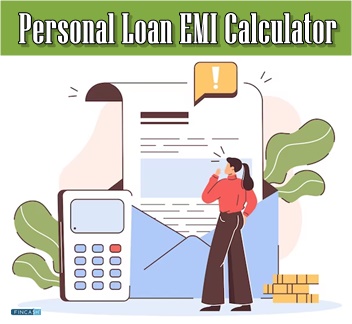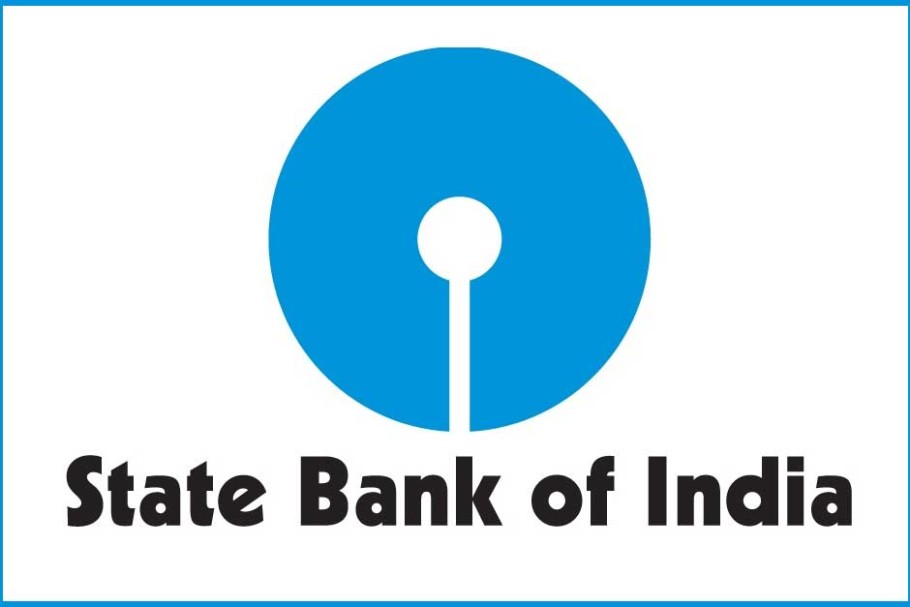
Fincash » Personal Loan EMI » Dos and Don'ts of Getting a Personal Loan
Table of Contents
- Dos of Getting a Personal Loan
- Don'ts of Getting a Personal Loan
- Tips for Choosing the Right Personal Loan
- Conclusion
- Frequently Asked Questions (FAQs)
- 1. How do you determine if you meet the requirements for a personal loan?
- 2. How much money can I get for a personal loan?
- 3. How much would you charge for a personal loan?
- 4. How long does receiving the go-ahead on a private loan typically take?
- 5. What paperwork do I need to apply for a personal loan?
Dos and Don'ts of Getting a Personal Loan
Individuals often turn to personal loans to gain immediate access to cash, particularly during times when they are experiencing financial hardship. Whether you need it to consolidate existing debt, cover the unanticipated expense, or fund a significant purchase, a personal loan can give you the financial flexibility you require. Yet, to avoid getting yourself into a difficult financial situation, it is essential to have a solid understanding of the proper and improper ways to obtain a personal loan.

When it comes to taking out a personal loan, there are some actions that should and should not be taken. This article will discuss those actions, including analysing your needs, borrowing responsibly, maintaining a decent Credit Score, and avoiding hidden fees. If you follow these instructions, you can get the most out of your personal loan while minimising the risk of any potential complications.
Dos of Getting a Personal Loan
Here are some dos of getting a personal loan to keep in mind:
1. Evaluate the state of your finances
It is necessary to thoroughly evaluate your existing financial standing before applying for a personal loan. This requires you to examine your Income, expenses, and debts you already have. If you understand your current financial status well, you should be able to figure out how much money you can afford to borrow and pay back. There are loan calculators available online that can provide you with an estimate of the amount of money you will have to pay back each month, depending on various interest rates and loan periods. An analysis of your current financial status can also assist you in determining areas in which you can reduce your expenditures and increase your savings.
2. Research to find the most favourable terms for your loan
Before settling on one particular loan offer, looking around at your options and making comparisons is essential. This can assist you in finding the loan that has the conditions and interest rate most suitable for your requirements. You can compare loans several creditors offer online or visit banks and credit unions in your neighbourhood. Always be careful to compare the Annual Percentage Rate (APR), which takes into account the interest rate and any fees that the lending institution may impose. It is important to keep in mind that applying for many loans at the same time might have a detrimental impact on your credit score; therefore, you should limit your applications to a select few lenders you are truly considering.
Talk to our investment specialist
3. Read the Terms and Conditions carefully
Ensure you have a thorough understanding of the terms and circumstances of the loan before signing the agreement for it. This comprises the interest rate, the length of time during which the loan must be repaid, and any fees or other charges that are associated with the loan. Be aware of any fines that may be imposed for making prepayments or late payments. If you are unsure about anything or have questions, you should enquire with the lender to get them clarified for you. Do not sign anything unless you are certain that you have read, comprehended, and agreed to all of the terms and conditions.
4. Ask questions and clarify doubts
Do not be hesitant to inquire about the loan, as this will provide you the opportunity to clarify any questions or concerns that you may have. Be sure to enquire about any fees or charges that are not immediately apparent, the various choices for repayment, and any associated penalties for late payments or prepayments. It is preferable to ask questions and get clarification if you are unsure about anything than to be startled later on. You should feel comfortable asking questions of a respectable lender, and they should be delighted to supply you with all the information you require to make an educated choice.
5. Make your payments on schedule
When you have an outstanding balance on a personal loan, it is imperative that you make your payments on schedule. Your credit score may suffer, and you may incur additional costs and fees as a result of making payments past their due date. You may avoid missing payments by either setting up automated payments or reminders for yourself. If you are having trouble making payments, you should get in touch with your lender to see if you can negotiate a new payment plan or postpone your payments.
6. Keep up a solid credit rating
When applying for loans in the future, it will be vital to have a strong credit score. Thus it is important to keep that score high. Be sure to pay all of your payments on time, maintain a low amount on each of your credit cards, and refrain from opening a large number of new credit accounts all at once. Make it a habit to check your Credit Report on a frequent Basis to look for any signs of fraudulent activity or inaccuracies. A higher credit score increases your likelihood of being approved for a loan with more favourable terms and a cheaper interest rate in the future.
Don'ts of Getting a Personal Loan
Here are some don'ts of getting a personal loan to keep in mind:
1. Don't undermine credit scores
When determining whether or not you are qualified for a personal loan, one of the key considerations that lenders look at is your credit score. The higher your score, the greater the likelihood that you will be authorised and receive terms that are to your advantage. Check your credit report thoroughly before applying for a personal loan to ensure that it is free of any inaccuracies or problems that could have a negative impact on your score.
2. Don't apply for an excessive number of loans at once
Your credit score may take a hit if you apply for several loans at the same time, which is something you should avoid doing. Every application necessitates a hard credit enquiry, which can bring a reduction in your score. In addition, having an excessive amount of queries on your credit report can make you appear as though you are eager for loans, which may dissuade potential lenders from cooperating with you.
3. Don't forget to look at the different deals
There is a wide variety of lenders and loan products on the Market, and each one has its own set of terms, interest rates, and fees. Make sure to do your research and weigh the pros and cons of the various loan packages offered by a variety of financial institutions before agreeing to take out a loan.
4. Don't forget to read the fine print
There are typically expenses associated with personal loans, including origination fees and prepayment penalties. Before you put your name on the dotted line for the loan, be sure you have a complete understanding of all of the fees that are linked with it. Although a personal loan can be a helpful tool for consolidating debt or paying unforeseen expenses, it is imperative that you refrain from utilising the money from the loan to make purchases that aren't absolutely necessary. Putting yourself in a vulnerable financial position and making it more difficult to repay a loan by taking on debt in order to pay for luxury goods or extravagant trips is a bad idea.
Tips for Choosing the Right Personal Loan
Now that you have understood the dos and don'ts, jotted down below are some tips that will help you select a correct personal loan:
Compare interest rates and fees
The interest rate and fees are two of the most important things to think about when choosing a personal loan. Make sure to compare the interest rates offered by different lenders and keep an eye out for any hidden fees or charges, such as application fees, processing fees, prepayment penalties, or late payment fees. Be aware that some lenders may advertise a low-interest rate but add other fees that can make the loan much more expensive overall.
Check the criteria for eligibility and the documents needed
Before you apply for a personal loan, you should make sure you meet the requirements set by the lender. This includes things like age, income, credit score, and whether or not you have a job. Lenders may also ask for different kinds of paperwork, such as proof of income, address, and identity. Before you apply, make sure to read over these requirements carefully. If you don't, you might get delayed or turned down for no reason.
Think about how long it takes to process the loan
The time it takes to process an application for a personal loan varies from lender to lender. If you need money quickly, look for a lender whose application and approval process is quick. Some lenders will approve you right away, while others may take several days or even weeks to do so. When choosing a loan, you should think about how long it will take to process.
Conclusion
To sum up, a personal loan can be a useful tool for reaching your Financial goals, but you need to be mindful of the dos and don'ts to make sure you make the right choice. There are a number of important things you should do before taking out a loan, including reading the fine print, comparing interest rates and fees, and creating a comprehensive repayment strategy.
Frequently Asked Questions (FAQs)
1. How do you determine if you meet the requirements for a personal loan?
A: Personal loan eligibility standards may differ by lender. However, most institutions Call for applicants to be at least 18 years old, have a stable source of income, have a decent credit score, and provide identification and proof of residence.
2. How much money can I get for a personal loan?
A: A personal loan's borrowing limit is based on variables like your income, credit history, and loan terms. Banks and other financial institutions typically provide unsecured loans between 2,00,000 and 20,00,000.
3. How much would you charge for a personal loan?
A: Personal loan interest rates are set by the lending institution and the borrower's credit history. Personal loan interest rates are typically between 6% and 36% annually, with the lower rates reserved for borrowers with strong credit and the higher rates reserved for those with poor credit.
4. How long does receiving the go-ahead on a private loan typically take?
A: The time it takes to acquire approval for a personal loan might Range from a few hours to several days, depending on the lender. It depends on the lender. However, it's possible to get fast approval.
5. What paperwork do I need to apply for a personal loan?
A: Proof of identity (such as a passport or driver's licence), evidence of address (such as a utility bill), proof of income (such as pay stubs or tax returns), and Bank statements may be required by some lenders when applying for a personal loan. However, the specific papers required may vary. Further paperwork, such as credit reports or character references, may be requested by some lending institutions.
All efforts have been made to ensure the information provided here is accurate. However, no guarantees are made regarding correctness of data. Please verify with scheme information document before making any investment.












